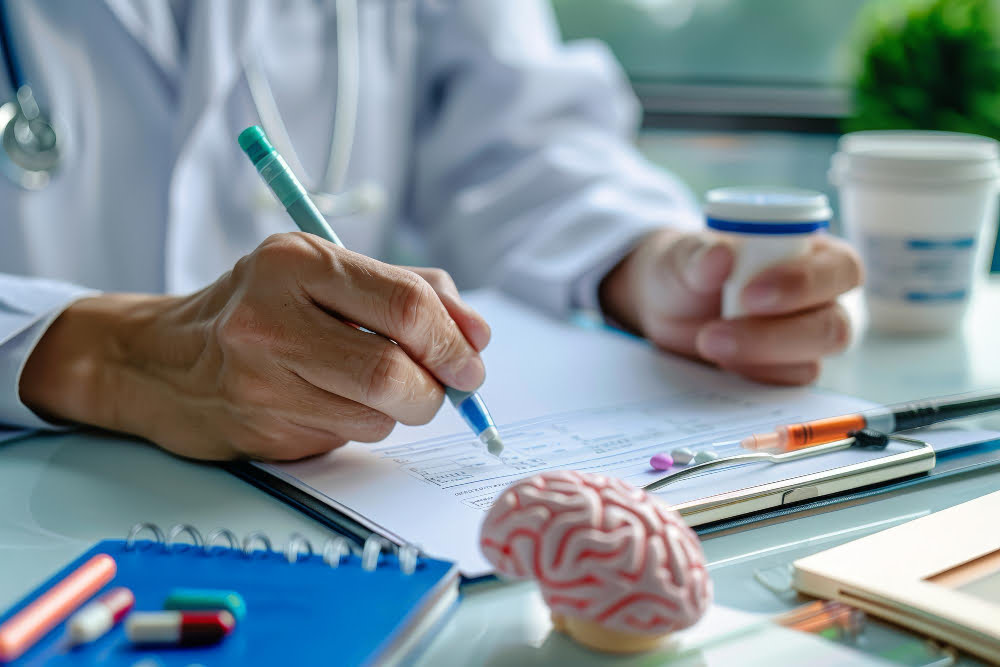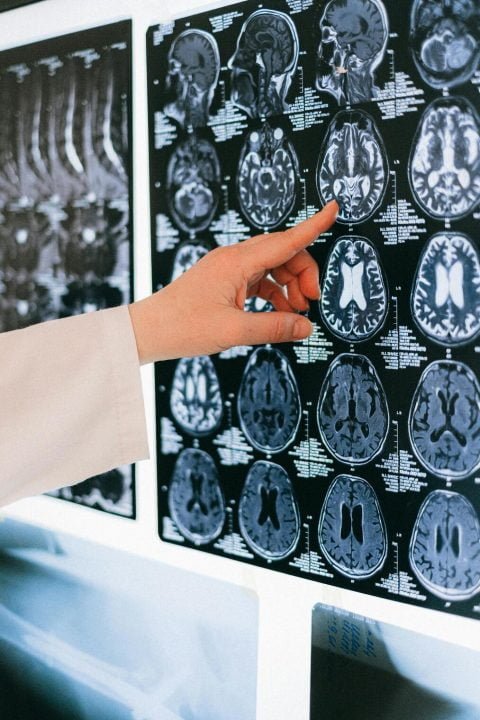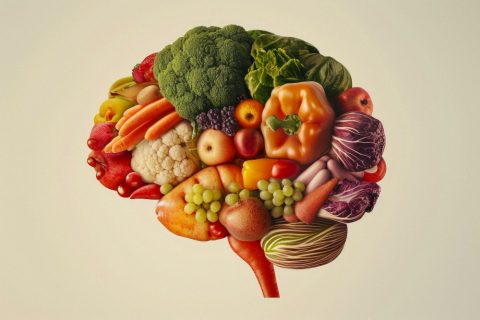Ever forget where you placed your keys or struggle to recall a name you just heard? These experiences, while occasional, can raise concerns about your cognitive health. Brain cognitive function tests offer valuable insights into how well your brain is thinking, remembering, and processing information. This article delves into the world of cognitive assessments, explaining what they measure, their significance, and how they contribute to maintaining good mental health.
What Is Cognition and Why Is It Important?
Cognition refers to the mental processes that fuel our understanding of the world. It encompasses thinking, reasoning, remembering, problem-solving, and making judgments. These cognitive abilities are fundamental for learning new things, making sound decisions, and adapting to ever-changing situations. Imagine trying to navigate a new city without the ability to reason or plan – cognition is that crucial internal compass guiding our thoughts and actions.
What Does the Cognitive Function of the Brain Do?
The brain’s cognitive function encompasses a vast array of processes. We think, reason, remember, and solve problems on a daily basis, often without even realizing it. These cognitive functions allow us to interact with the world around us, make choices, and complete everyday tasks. From remembering your grocery list to following complex instructions at work, our cognitive abilities are the foundation for everything we do.
What Is the Purpose of the Cognitive Function?
Cognitive functions are the brain’s toolbox, equipping us with the mental tools needed to navigate life. These functions include:
- Memory: Enables us to store and retrieve information.
- Attention: Allows us to focus on specific tasks and filter out distractions.
- Language: Enables communication and comprehension.
- Executive Functions: Involve higher-order thinking skills like planning, organizing, and decision-making.
These functions work together seamlessly, allowing us to live independently and participate actively in our daily lives.
Why Is Cognitive Function Important for Mental Health?
Healthy cognitive function is the cornerstone of good mental health. It empowers us to manage daily tasks, make informed decisions, and maintain our independence. When cognitive impairments arise, they can significantly impact our mental well-being. Difficulties with memory, focus, or problem-solving can lead to frustration, anxiety, and even depression. Regular cognitive assessments can help identify these issues early on, paving the way for interventions and support.
Why Is Cognitive Activity Important?
Just like any other muscle, the brain benefits from exercise. Engaging in cognitive activities like reading, solving puzzles, or learning new skills helps maintain and improve brain function. These activities stimulate the brain, fostering new neural connections and reducing the risk of cognitive decline as we age. So next time you’re looking for a mental workout, pick up a book, challenge yourself with a crossword puzzle, or explore a new hobby – your brain will thank you for it!
What Are the Benefits of Cognitive Function?
Healthy cognitive function unlocks a world of possibilities. It allows us to:
- Communicate effectively and express ourselves clearly.
- Solve problems creatively and find solutions to challenges.
- Live independently and manage daily activities with ease.
- Maintain emotional stability and resilience in the face of difficulties.
By optimizing our cognitive function, we empower ourselves to live fulfilling and meaningful lives.
What Is a Cognitive Impairment Test?
A cognitive impairment test is a screening tool used to assess the presence and severity of cognitive decline. These tests evaluate various mental functions like memory, attention, and language. By identifying potential deficits, these tests play a crucial role in diagnosing and managing cognitive disorders.
What Is a Baseline Cognitive Assessment For?
Imagine taking a snapshot of your cognitive function at a specific point in time. That’s precisely what a baseline cognitive assessment does. It establishes a reference point for future evaluations, allowing healthcare professionals to track changes in your cognitive abilities over time. This comparative analysis is essential for detecting any decline in cognitive function early on, enabling prompt intervention.
What Is the Cognitive Ability Test?
Looking for a comprehensive evaluation of your mental strengths and weaknesses? A cognitive ability test might be the answer. This assessment delves into various cognitive domains, including reasoning, memory, problem-solving, and verbal fluency. By providing a detailed picture of your cognitive profile, these tests can be instrumental in identifying areas that require improvement or support.
What Does a Cognitive Abilities Test Measure?
Cognitive abilities tests measure a broad spectrum of mental functions, including:
- Memory: Ability to encode, store, and retrieve information.
- Attention: Capacity to focus, sustain concentration, and filter out distractions.
- Reasoning: Skill to analyze information, draw logical conclusions, and solve problems.
- Problem-solving: Ability to identify challenges, develop solutions, and make decisions.
- Verbal Skills: Comprehension and use of language, including fluency and vocabulary.
What Is a Cognitive Test for Dementia?
As we age, cognitive decline is a common concern. Cognitive tests for dementia are specifically designed to detect early signs of dementia-related conditions like Alzheimer’s disease. These tests focus on evaluating memory, language, attention, and other cognitive skills. By identifying significant declines in these areas, healthcare professionals can initiate appropriate treatment plans and support strategies.
How Does the Clock Drawing Test Help Identify Dementia?
A simple yet effective tool for identifying cognitive impairment is the clock drawing test. In this test, individuals are asked to draw a clock face showing a specific time. Difficulty in completing this task, such as problems with spatial orientation or shaky lines, can indicate issues with executive function and visuospatial skills, which are often early signs of dementia.
How Do Brain Scientists Define ‘Executive Function?’
Executive function refers to a group of higher-level cognitive processes that govern our goal-directed behavior. These functions include:
- Planning: The ability to develop a roadmap for achieving a goal.
- Decision-making: The skill to weigh options and make sound choices.
- Problem-solving: The capacity to identify challenges and develop effective solutions.
- Time Management: The ability to organize and prioritize tasks effectively.
- Working Memory: The skill to hold information in mind and manipulate it mentally.
Executive functions are essential for managing daily activities, achieving long-term goals, and adapting to new situations.
What Are Cognitive Tests for Mental Health?
Mental health conditions can sometimes manifest through cognitive impairments. Cognitive tests for mental health assess various cognitive functions that can be impacted by these conditions, such as memory, attention, and executive function. By identifying these cognitive deficits, these tests can aid in diagnosing specific mental health conditions and tailoring treatment plans accordingly.
Why Is Cognitive Ability Testing Important?
Early detection is key when it comes to cognitive decline. Cognitive ability testing plays a vital role in:
- Identifying Early Signs of Decline: Detecting subtle changes in cognitive function that might signal the onset of cognitive disorders.
- Diagnosing Conditions: Providing valuable information for diagnosing specific cognitive impairments like dementia or learning disabilities.
- Guiding Interventions: Informing the development of treatment plans and interventions tailored to address specific cognitive needs.
Early identification of cognitive decline allows for prompt intervention, which can significantly improve outcomes and overall well-being.
Why Are Cognitive Tests Important?
Cognitive tests offer a multitude of benefits, including:
- Early Detection of Decline: Identifying early signs of cognitive decline, allowing for prompt intervention and improved long-term outcomes.
- Monitoring Changes Over Time: Tracking changes in cognitive function over time, providing valuable insights into the progression of cognitive decline.
- Guiding Treatment Plans: Informing the development of treatment plans and interventions tailored to address specific cognitive needs.
These tests empower healthcare professionals to make informed decisions about your cognitive health and mental well-being.
What Is the Objective of Cognitive Assessment Testing?
The primary purpose of cognitive assessment testing is threefold:
- Identify Strengths and Weaknesses: Uncover an individual’s cognitive strengths and weaknesses to create a comprehensive picture of their cognitive profile.
- Diagnose Conditions: Aid in diagnosing specific cognitive disorders, such as dementia, learning disabilities, or ADHD.
- Monitor Changes Over Time: Track changes in cognitive function over time to assess the effectiveness of interventions and identify any further decline.
This information is crucial for developing effective treatment plans and monitoring progress towards cognitive improvement.
What Are the Benefits of Neurocognitive Testing Evaluation?
Neurocognitive testing provides a more in-depth assessment of cognitive functions compared to standard cognitive screening tools. This comprehensive evaluation can be beneficial for:
- Diagnosing Conditions: Diagnosing a wider range of conditions that can impact cognitive function, such as ADHD, learning disabilities, or brain injuries.
- Identifying Cognitive Strengths and Weaknesses: Offering a detailed analysis of an individual’s cognitive strengths and weaknesses across various domains.
- Guiding Interventions: Providing insights that can be used to develop targeted interventions and support strategies for cognitive improvement.
Neurocognitive testing is a valuable tool for gaining a deeper understanding of an individual’s cognitive profile and informing treatment decisions.
What Is the Purpose of the Cognitive Performance Test?
The focus of a cognitive performance test is on assessing an individual’s ability to perform everyday activities and manage practical tasks. This type of test is often used in occupational therapy settings to evaluate how cognitive impairments might affect a person’s ability to function independently in their daily lives.
What Is One of the First Signs of Cognitive Decline?
One of the earliest signs of cognitive decline is often memory loss, particularly difficulty remembering recent events or conversations. Other early signs can include:
- Trouble with Problem-Solving: Difficulty with tasks that require planning, organization, and critical thinking. You might find it challenging to follow complex instructions, develop solutions to everyday problems, or make sound decisions.
- Language Difficulties: Changes in the way you communicate can be a red flag. This could involve forgetting words frequently, struggling to express yourself clearly, or having difficulty following conversations.
- Disorientation and Confusion: Feeling lost in familiar places, forgetting important dates or appointments, or experiencing confusion about the time or day can be signs of cognitive decline.
- Changes in Mood or Behavior: Increased irritability, apathy, withdrawal from social activities, or sudden personality changes can sometimes be linked to underlying cognitive decline.
It’s important to remember that occasional forgetfulness or experiencing one of these signs in isolation doesn’t necessarily indicate cognitive decline. However, if you’re experiencing multiple signs consistently, or if these changes are impacting your daily life, it’s advisable to consult a healthcare professional for further evaluation.
Finding Help and Maintaining Cognitive Health
While cognitive decline can be a concern, it’s important to remember that proactive steps can be taken to maintain and improve cognitive health. Here are some resources and strategies to consider:
- Consult a Healthcare Professional: If you’re experiencing concerning cognitive changes, schedule an appointment with your doctor. They can assess your cognitive function, discuss your medical history, and recommend appropriate testing or interventions.
- Embrace Brain-Healthy Habits: Lifestyle choices significantly impact cognitive health. Prioritize regular exercise, a balanced diet rich in fruits, vegetables, and whole grains, and adequate sleep. Additionally, manage stress effectively and challenge your mind with stimulating activities like learning a new language or playing brain games.
- Stay Socially Connected: Social interaction plays a crucial role in cognitive well-being. Engage with friends and family, participate in social activities, and volunteer in your community. Strong social connections can help keep your mind sharp and boost your mood.
- Cognitive Rehabilitation: If you’ve been diagnosed with a cognitive impairment, cognitive rehabilitation programs can be beneficial. These programs involve targeted exercises and strategies to improve specific cognitive skills and help individuals manage daily activities more effectively.
Conclusion: Taking Charge of Your Cognitive Health
Cognitive function is a vital aspect of mental well-being. By understanding the importance of cognitive assessments and taking proactive steps to maintain brain health, you can empower yourself to navigate the aging process with confidence. Remember, early detection is key. If you have concerns about your cognitive function, don’t hesitate to seek professional guidance. With a proactive approach and a commitment to healthy lifestyle choices, you can optimize your cognitive health and live a fulfilling life.
Also read: Find your cognitive age
Frequently Asked Questions
A: Several tests assess cognitive function, each with its strengths. Common ones include the MMSE, a quick screening for memory, attention, and language. The MoCA provides a more detailed picture of these and other cognitive skills. The Clock Drawing Test is a simple but effective tool for evaluating visuospatial abilities and planning.
A: The recommended frequency depends on your situation. Healthy adults might consider a baseline test in their 40s or 50s, with follow-ups every few years. Talk to your doctor for personalized advice, especially if you have a family history of cognitive decline or experience memory concerns.
A: Not definitively, but they can be a valuable tool for early detection. They can identify subtle declines that might warrant further investigation. Early intervention with lifestyle changes or medications may help slow cognitive decline.
A: These tests can be beneficial for a wide range of people. Healthy adults can establish a cognitive baseline for future reference. Those with a family history of cognitive decline can benefit from early detection. People experiencing memory concerns can use these tests to identify the cause and develop appropriate treatment plans.
A: No, cognitive function tests are screening tools, not definitive diagnoses. A positive test result indicates a need for further investigation. Doctors consider test results alongside medical history, physical exams, and potentially brain imaging for an accurate dementia diagnosis.
A: Absolutely! Based on your results, your doctor might recommend lifestyle changes that can potentially improve cognitive function and brain health. These might include regular exercise, a balanced diet, stress management techniques, and brain-stimulating activities like learning a new language or playing puzzles.
A: Insurance coverage for cognitive testing varies depending on your plan and the specific test. Contact your insurance provider to understand your specific coverage.
A: Cognitive function tests are shorter screenings, typically administered by a doctor or nurse. Neuropsychological tests are more in-depth assessments requiring a specialist and offering a broader picture of cognitive strengths and weaknesses.




